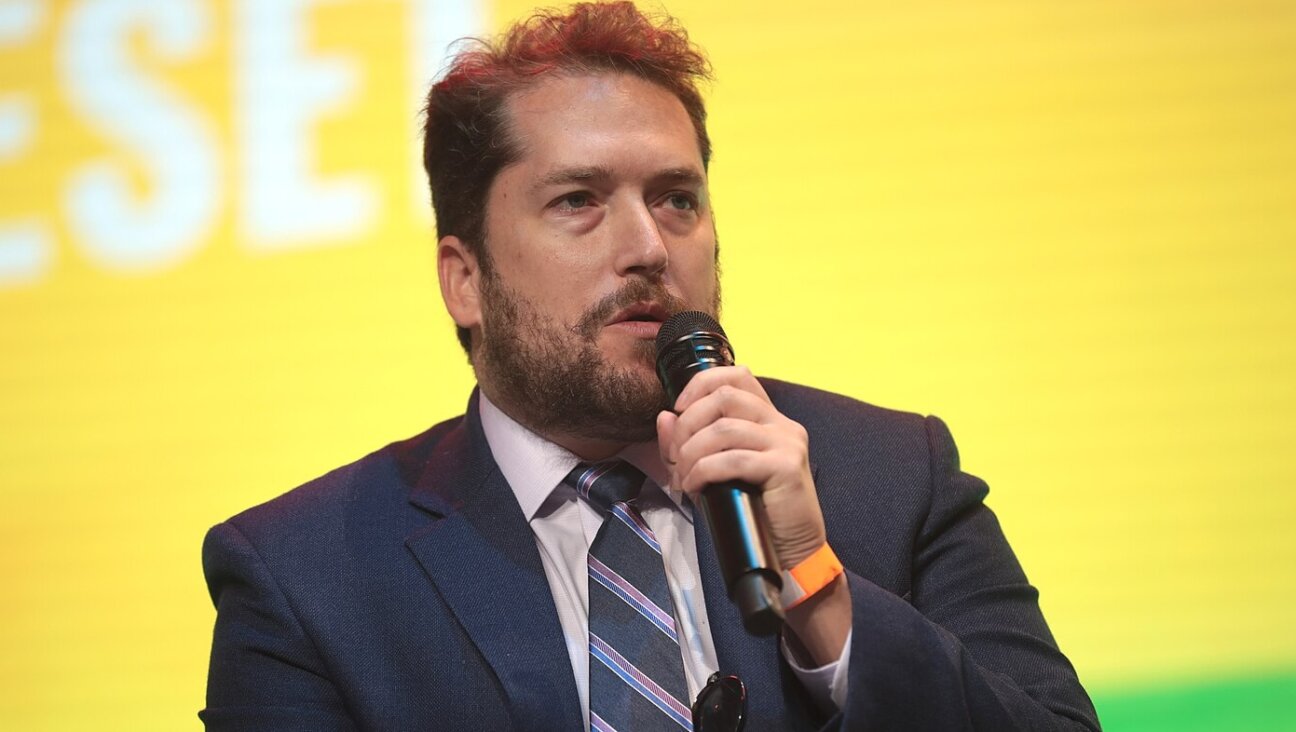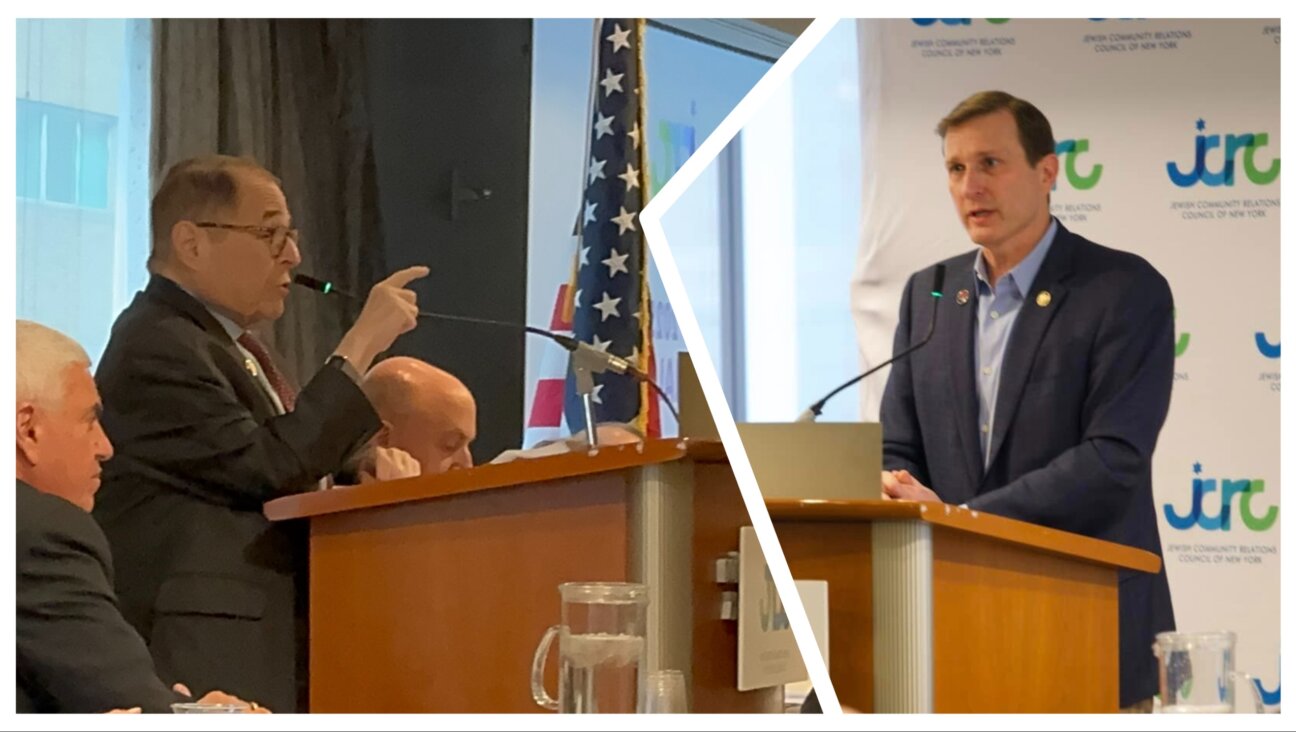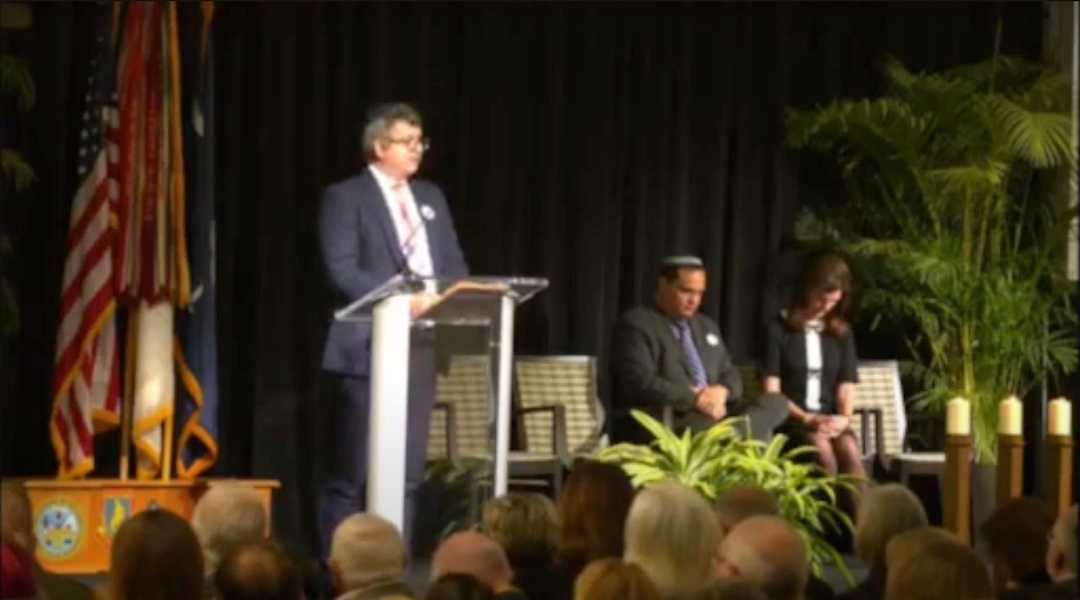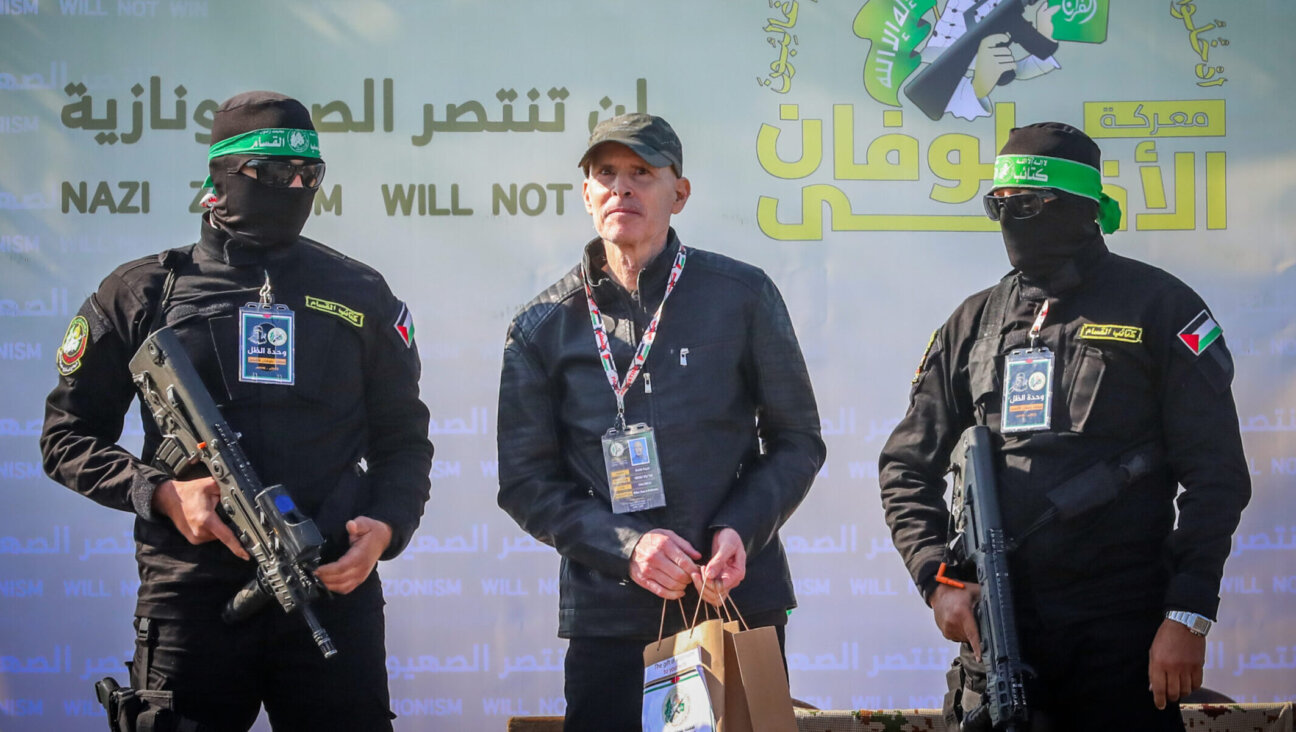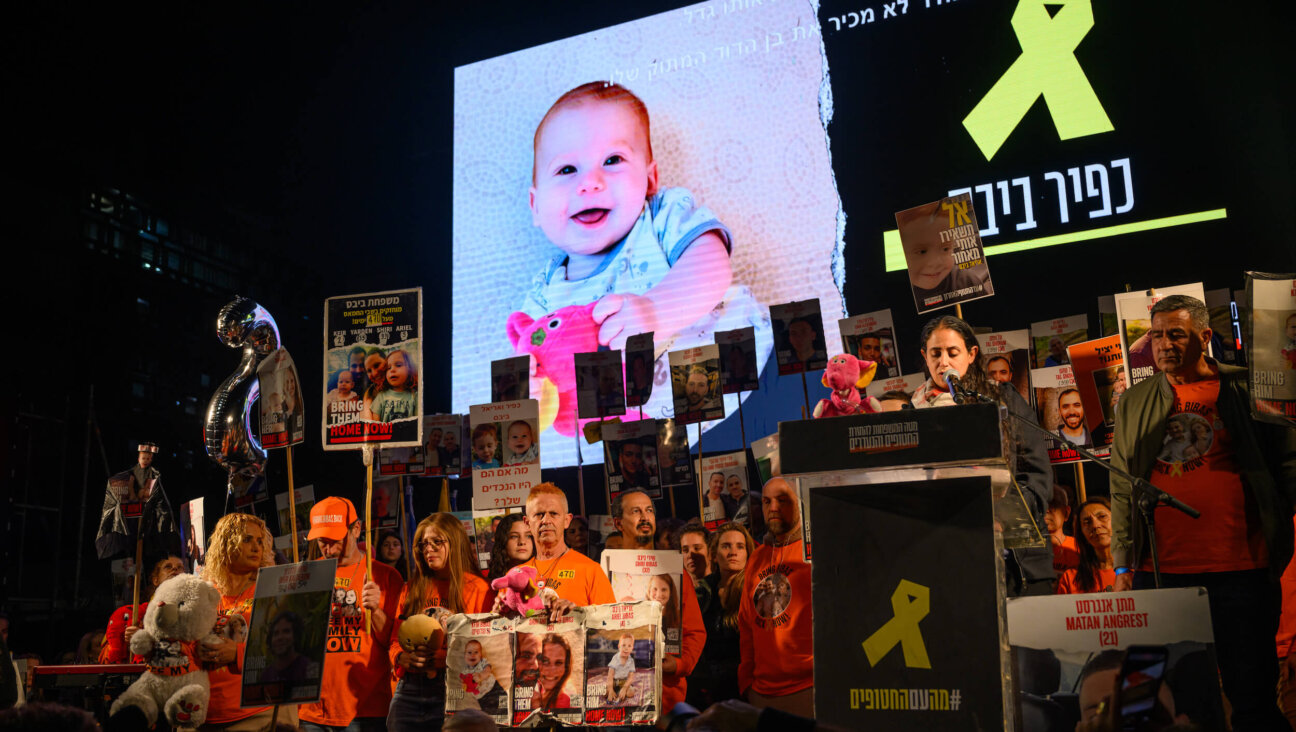Israeli cabinet ministers cancel meetings with U.S. Jewish organizations in the wake of protests
In Boston, a protester who rushed past security while following Nir Barkat through a hotel corridor was questioned by police
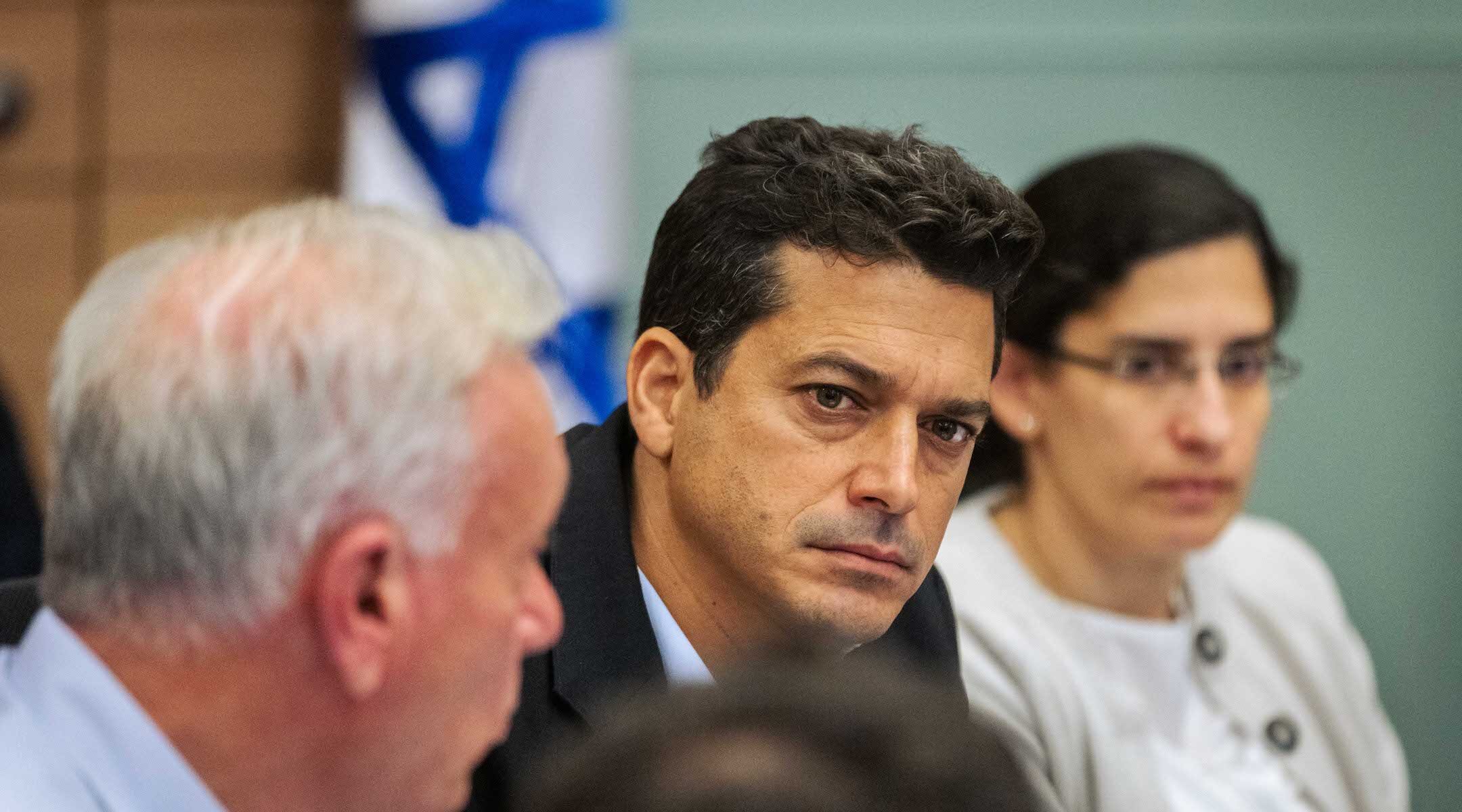
Amichai Chikli, head of Israel’s Diaspora Affairs Ministry. Photo by Olivier Fitoussi/Flash90
WASHINGTON (JTA) — Two Israeli ministers who have built relationships with Jewish leaders in the Diaspora canceled meetings at the last minute with American Jewish organizations in the face of protests.
One of the ministers, however, was still confronted by a demonstration, and one protestor was thrown to the ground by security guards.
Amichai Chikli, the minister of Diaspora affairs, canceled a meeting that was to have taken place Thursday with the Washington, D.C., area’s Jewish Community Relations Council and Jewish federation. Nir Barkat, the economy minister and former Jerusalem mayor and tech entrepreneur, canceled an event at a Boston-area synagogue scheduled for the same day.
The cancellations come after a week during which protests, often led by Israeli expatriates, have repeatedly disrupted the activities of Israeli officials visiting the United States for a pro-Israel parade in New York City last Sunday. The protests aim to support mass Israeli street demonstrations against the right-wing government’s effort to significantly weaken the judiciary.
In Boston, protesters confronted Barkat in his hotel, and a video posted to social media showed a protester rush past security toward Barkat, whose guards threw him to the ground. The protester was hospitalized and questioned by police. Barkat addressed the incident on Twitter by writing, “A political murder is only a matter of time in the state of Israel.”
“Thanks to the protest, there are those who have allowed the blood of elected officials to flow,” he wrote. “We’re on a slippery and dangerous slope. I am grateful to the guards of the personal security detail who rebuffed the attacker and prevented injury to me. Violence is the crumbling of the foundations of democracy.”
Barkat’s event was to have taken place at Temple Beth Elohim , a Reform synagogue in Wellesley, a suburb of Boston. The city’s Israeli consulate had rented the space for the speech weeks in advance, according to Haaretz, and when the congregation’s rabbi heard of the event, he said he planned to join in protests.
“It is very unusual that we find protesters outside our Temple building, even though a robust debate is consistent with Israel’s vibrant democracy and our Jewish tradition,” said Rabbi Joel Sisonwine, according to Haaretz. “I truly believe that the current judicial reform proposal, as currently stated, is a threat to Israel’s democracy.”
The Israeli embassy in Washington said Chikli canceled his appearance on Thursday because of a scheduling conflict. Federation and JCRC officials seemed surprised by the cancelation, saying it came at the last minute, and an Israeli-led protest movement, called UnXeptable, claimed credit for the cancellation.
Protests have dogged the itineraries of several Israelis in the U.S. over the past week. In recent days, a government minister canceled a speech in Los Angeles, and Israeli officials in New York were jeered both within and outside events, at Sunday’s parade and on the streets. Barkat was interrupted by protesters on Monday at a conference hosted by the Jerusalem Post, and Chikli was heckled at the parade, where he appeared to mock protesters.
A number of American Jews, among them organizations and individuals that historically have refrained from criticizing Israel, have spoken out against the judicial reforms and in some cases have joined protests in Israel and in the United States. They see the courts as a bulwark protecting vulnerable populations, including women, LGBTQ people, Arabs and non-Orthodox Jews.
This article originally appeared on JTA.org.
A message from our Publisher & CEO Rachel Fishman Feddersen

I hope you appreciated this article. Before you go, I’d like to ask you to please support the Forward’s award-winning, nonprofit journalism so that we can be prepared for whatever news 2025 brings.
At a time when other newsrooms are closing or cutting back, the Forward has removed its paywall and invested additional resources to report on the ground from Israel and around the U.S. on the impact of the war, rising antisemitism and polarized discourse.
Readers like you make it all possible. Support our work by becoming a Forward Member and connect with our journalism and your community.
— Rachel Fishman Feddersen, Publisher and CEO







